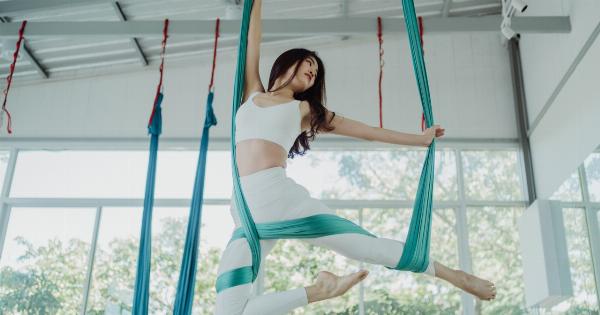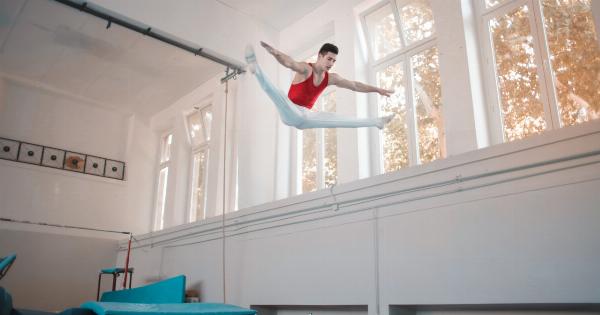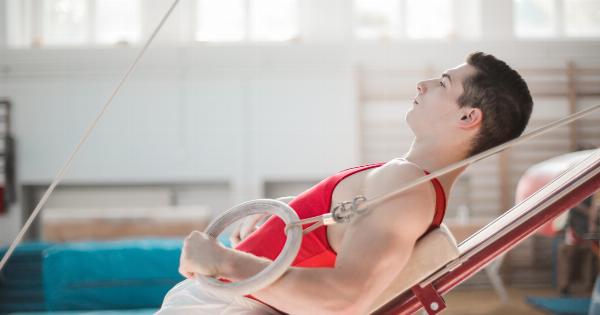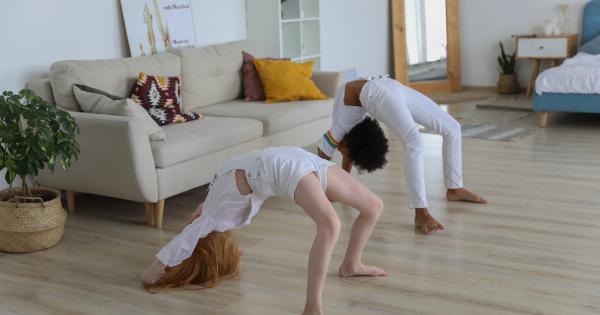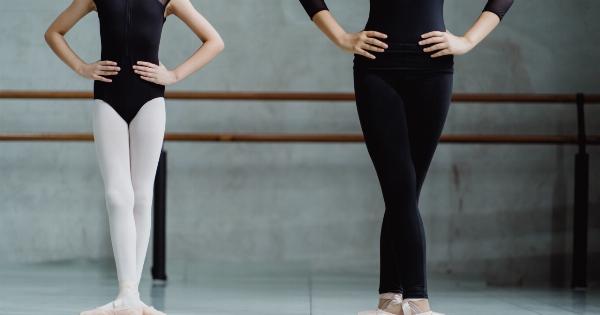Gymnastics training is a physically demanding sport that requires strength, flexibility, and coordination.
While it can be a great form of exercise and recreation for many individuals, there are certain groups for whom gymnastics training may not be recommended. It is important to consider the physical and developmental abilities of individuals before enrolling them in gymnastics classes or training programs.
1. Infants and Toddlers
Gymnastics training typically involves complex movements, balance, and coordination that infants and toddlers have not yet developed.
Their bodies are still growing and developing, and they may not have the strength or coordination required for gymnastics activities. It is often recommended to wait until children reach an appropriate age and developmental stage before introducing them to gymnastics training.
2. Adults with Pre-existing Medical Conditions
Adults who have pre-existing medical conditions should consult with a healthcare professional before engaging in gymnastics training.
Certain medical conditions, such as heart conditions, joint problems, or chronic illnesses, may increase the risk of injury during gymnastics activities. It is essential to assess the individual’s overall health and physical capabilities before participating in any high-impact or physically demanding activities like gymnastics.
3. Individuals with Severe Physical Disabilities
Gymnastics training may not be suitable for individuals with severe physical disabilities, as it typically requires a high level of strength and coordination.
While adaptive gymnastics programs may exist for individuals with physical disabilities, those with severe limitations may need to explore alternative forms of exercise that cater to their specific needs and abilities.
4. Individuals with Poor Flexibility
Flexibility is a fundamental aspect of gymnastics training. Individuals with poor flexibility may struggle to perform certain movements properly and safely.
While flexibility can improve with training and stretching exercises, individuals with severe limitations may find it challenging to progress in gymnastics. It is important to assess a person’s flexibility level before enrolling them in a gymnastics program.
5. Individuals with Impaired Motor Skills
Gymnastics training requires precise motor skills, coordination, and body awareness.
Individuals with impaired motor skills, such as those with certain neurological conditions or developmental delays, may find it challenging to meet the requirements of gymnastics activities. These individuals may benefit from alternative forms of physical activity that focus on improving motor skills in a more tailored manner.
6. Pregnant Women
Gymnastics training involves high-impact movements and poses potential risks to the well-being of both the mother and the developing fetus.
Pregnant women should consult with their healthcare provider before engaging in any physically demanding activities, including gymnastics. It is essential to prioritize the health and safety of both the mother and the unborn child.
7. Individuals with Cardiovascular Issues
Gymnastics training can be demanding on the cardiovascular system, requiring bursts of intense physical activity. Individuals with underlying cardiovascular issues should consult with their doctor before participating in gymnastics training.
The doctor can evaluate the individual’s cardiovascular health and provide recommendations on safely engaging in physical activities.
8. Individuals with Severe Back or Joint Problems
Gymnastics training often involves movements that put stress on the back and joints. Individuals with severe back or joint problems, such as herniated discs or arthritis, may find gymnastics too strenuous and potentially exacerbate their condition.
It is crucial to consult with a healthcare professional specialized in musculoskeletal issues to assess the safety and suitability of gymnastics training.
9. Individuals with a Fear of Heights or Inverted Positions
Gymnastics often involves activities performed at heights or inverted positions, such as balance beam routines, and various flips and tumbles.
Individuals with a fear of heights or inverted positions may experience significant anxiety or discomfort during such activities. It is essential to consider a person’s psychological well-being and comfort levels before enrolling them in gymnastics training.
10. Individuals with Psychological or Emotional Limitations
Gymnastics training requires focus, discipline, and the ability to perform under pressure. Individuals with psychological or emotional limitations, such as severe anxiety, may find it challenging to cope with the demands of gymnastics.
It is important to evaluate an individual’s overall mental well-being and provide appropriate support and accommodations if needed.

